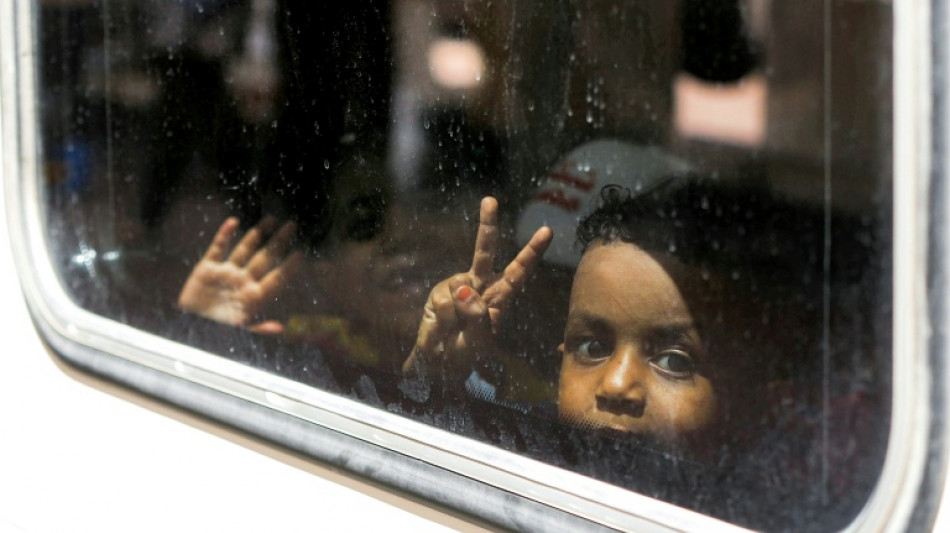
-
 Rampant South Africa inflict record 43-10 defeat on All Blacks
Rampant South Africa inflict record 43-10 defeat on All Blacks
-
Collignon stuns De Minaur as Belgium take 2-0 Davis Cup lead over Australia

-
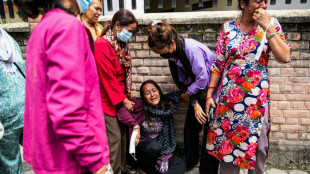 Mourning Nepalis hope protest deaths will bring change
Mourning Nepalis hope protest deaths will bring change
-
Carreras boots Argentina to nervy 28-26 win over Australia

-
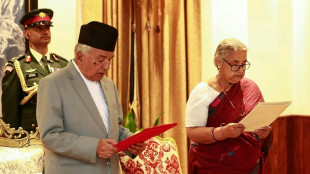 Nepal returns to calm as first woman PM takes charge
Nepal returns to calm as first woman PM takes charge
-
How mowing less lets flowers bloom along Austria's 'Green Belt'

-
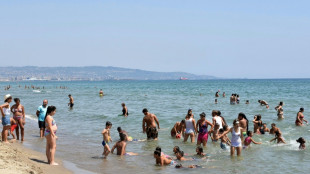 Too hot to study, say Italian teachers as school (finally) resumes
Too hot to study, say Italian teachers as school (finally) resumes
-
Alvarez, Crawford both scale 167.5 pounds for blockbuster bout

-
 Tokyo fans savour athletics worlds four years after Olympic lockout
Tokyo fans savour athletics worlds four years after Olympic lockout
-
Akram tells Pakistan, India to forget noise and 'enjoy' Asia Cup clash
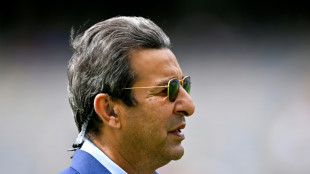
-
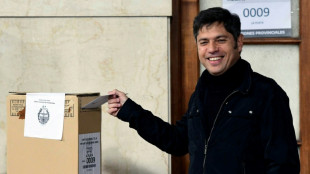 Kicillof, the Argentine governor on a mission to stop Milei
Kicillof, the Argentine governor on a mission to stop Milei
-
Something to get your teeth into: 'Jaws' exhibit marks 50 years

-
 Germany, France, Argentina, Austria on brink of Davis Cup finals
Germany, France, Argentina, Austria on brink of Davis Cup finals
-
War with Russia weighs heavily on Ukrainian medal hope Doroshchuk

-
 Suspect in Charlie Kirk killing caught, widow vows to carry on fight
Suspect in Charlie Kirk killing caught, widow vows to carry on fight
-
Dunfee and Perez claim opening world golds in Tokyo

-
 Ben Griffin leads PGA Procore Championship in Ryder Cup tune-up
Ben Griffin leads PGA Procore Championship in Ryder Cup tune-up
-
'We're more than our pain': Miss Palestine to compete on global stage

-
 Ingebrigtsen seeks elusive 1500m world gold after injury-plagued season
Ingebrigtsen seeks elusive 1500m world gold after injury-plagued season
-
Thailand's Chanettee leads by two at LPGA Queen City event

-
 Dolphins' Hill says focus is on football amid domestic violence allegations
Dolphins' Hill says focus is on football amid domestic violence allegations
-
Nigerian chef aims for rice hotpot record
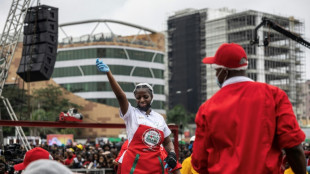
-
 What next for Brazil after Bolsonaro's conviction?
What next for Brazil after Bolsonaro's conviction?
-
Fitch downgrades France's credit rating in new debt battle blow
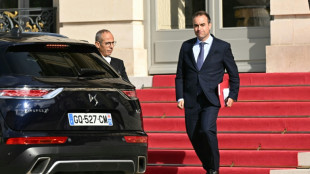
-
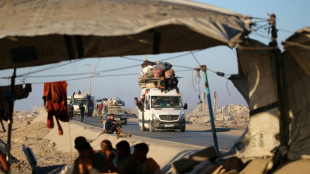 Fifty reported dead in Gaza as Israel steps up attacks on main city
Fifty reported dead in Gaza as Israel steps up attacks on main city
-
Greenwood among scorers as Marseille cruise to four-goal victory

-
 Rodgers calls out 'cowardly' leak amid Celtic civil war
Rodgers calls out 'cowardly' leak amid Celtic civil war
-
Frenchman Fourmaux grabs Chile lead as Tanak breaks down

-
 Germany, France, Argentina and Austria on brink of Davis Cup finals
Germany, France, Argentina and Austria on brink of Davis Cup finals
-
New coach sees nine-man Leverkusen beat Frankfurt

-
 US moves to scrap emissions reporting by polluters
US moves to scrap emissions reporting by polluters
-
Matsuyama leads Ryder Cup trio at PGA Championship

-
 US to stop collecting emissions data from polluters
US to stop collecting emissions data from polluters
-
Pope Leo thanks Lampedusans for welcoming migrants
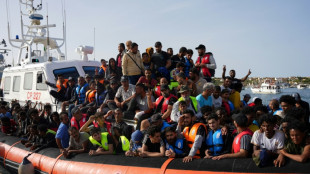
-
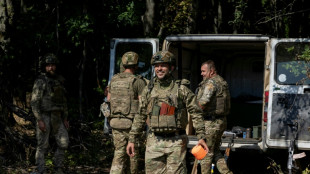 Moscow says Ukraine peace talks frozen as NATO bolsters defences
Moscow says Ukraine peace talks frozen as NATO bolsters defences
-
Salt's rapid ton powers England to record 304-2 against South Africa in 2nd T20

-
 Noah Lyles: from timid school student to track's showman
Noah Lyles: from timid school student to track's showman
-
Boeing defense workers reject deal to end strike

-
 Germany, Argentina close in on Davis Cup finals
Germany, Argentina close in on Davis Cup finals
-
Alvarez, Crawford both tip scales at 167.5 pounds for title bout

-
 Armani will lays path to potential buyout by rival
Armani will lays path to potential buyout by rival
-
'We don't want to become a memory': minister of endangered Tuvalu

-
 Ireland coach 'fully confident' Wafer fit for Women's Rugby World Cup quarter-final
Ireland coach 'fully confident' Wafer fit for Women's Rugby World Cup quarter-final
-
Philipsen wins sprint for Vuelta treble

-
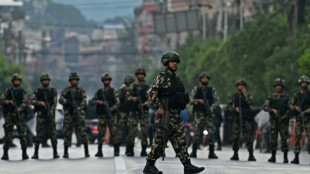 Nepal ex-chief justice Karki becomes next PM after protests
Nepal ex-chief justice Karki becomes next PM after protests
-
Peruvians live in fear as extortion runs rampant
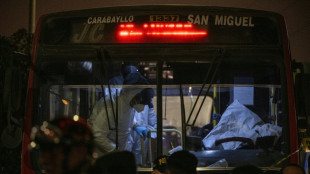
-
 Philipsen wins Vuelta stage 19 for treble
Philipsen wins Vuelta stage 19 for treble
-
UN expert urges protection for indigenous Botswana people
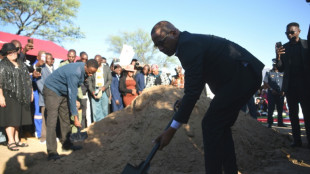
-
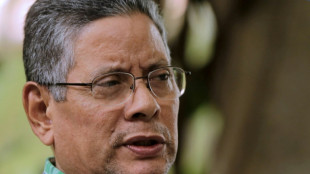 Costa Rica arrests four in murder of Nicaraguan exile
Costa Rica arrests four in murder of Nicaraguan exile
-
Moscow says peace talks frozen as Zelensky warns Putin wants all of Ukraine
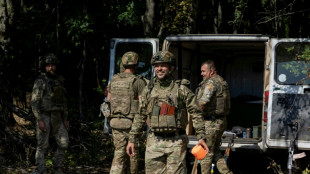

Hundreds of Sudanese refugees in Cairo take up chance to return home for free
On a sweltering Monday morning at Cairo's main railway station, hundreds of Sudanese families stood waiting, with bags piled at their feet and children in tow, to board a train bound for a homeland shattered by two years of war.
The war is not yet over, but with the army having regained control of key areas and life in Egypt often hard, many refugees have decided now is the time to head home.
"It's an indescribable feeling," said Khadija Mohamed Ali, 45, seated inside one of the train's ageing carriages, her five daughters lined beside her.
"I'm happy that I'll see my neighbours again -- my family, my street," she told AFP ahead of her return to the capital Khartoum, still reeling from a conflict that has killed tens of thousands and displaced more than 14 million.
She was among the second group of refugees travelling under Egypt's voluntary return programme, which offers free transportation from Cairo to Khartoum, more than 2,000 kilometres away by train and bus.
The first convoy left a week earlier.
The programme is a joint effort between the Egyptian National Railways and Sudan's state-owned arms company Defence Industries System, which is covering the full cost of the journey, including tickets and onward bus travel from Egypt's southern city of Aswan to the Sudanese capital.
The Sudanese army is keen for the refugees to return, in part to reinforce its control over recently recaptured areas and as a step towards normality.
Each Monday, a third-class, air-conditioned train departs Cairo carrying hundreds on a 12-hour journey to Aswan before they continue by bus across the border.
At precisely 11:30 am, a battered locomotive rumbled into the station and women broke into spontaneous ululation.
But while some Sudanese are returning home, many continue to flee their homeland, which has been ravaged by war and famine.
According to a June report from the UN's refugee agency UNHCR, over 65,000 Sudanese crossed into Chad in just over a month.
Crossings through Libya, one of the most dangerous routes to Europe, have increased this year, according to the Mixed Migration Center.
- Khartoum retaken -
The war, which began in April 2023, pits army chief Abdel Fattah al-Burhan against his erstwhile ally Mohamed Hamdan Daglo, who leads the paramilitary Rapid Support Forces (RSF).
The fighting first erupted in Khartoum and quickly spread, triggering one of the world's worst humanitarian crises, according to the United Nations.
Earlier this year, Sudan's army declared it had fully retaken Khartoum. Since then, a trickle of returnees has begun.
Last week, the country's new prime minister, Kamil Idris, made his first visit to the capital since the conflict began, promising that "national institutions will come back stronger than before".
The UN has predicted that more than two million people could return to greater Khartoum by the end of the year, though that figure depends heavily on improvements in security and public infrastructure.
The capital remains a fractured city. Its infrastructure has been decimated, health services remain scarce and electricity is still largely out in many districts.
- 'Just go back' -
"Slowly things will become better," said Maryam Ahmed Mohamed, 52, who plans to return to her home in Khartoum's twin city of Omdurman with her two daughters.
"At least we'll be back at home and with our family and friends," she told AFP.
For many, the decision to return home is driven less by hope than by hardship in neighbouring countries like Egypt.
Egypt now hosts an estimated 1.5 million Sudanese refugees, who have limited access to legal work, healthcare and education, according to the UNHCR.
Hayam Mohamed, 34, fled Khartoum's Soba district with her family to Egypt 10 months ago when the area was liberated, but was in ruins.
Though services remain nearly non-existent in Khartoum, Mohamed said she still wanted to leave Egypt and go home.
"Life was too expensive here. I couldn't afford rent or school fees," Mohamed said.
Elham Khalafallah, a mother of three who spent seven months in Egypt, also said she struggled to cope.
She's now returning to the central Al-Jazirah state, which was retaken by the army late last year and is seen as "much safer and having better services than Khartoum".
According to the UN's International Organization for Migration, about 71 percent of returnees were heading to Al-Jazirah, southeast of the capital, while fewer than 10 percent were going to Khartoum.
Just outside the Cairo station, dozens more were sitting on benches, hoping for standby tickets.
"They told me the train was full," said Maryam Abdullah, 32, who left Sudan two years ago with her six children.
"But I'll wait. I just want to go back, rebuild my house, and send my children back to school," she told AFP.
A.Ruegg--VB
